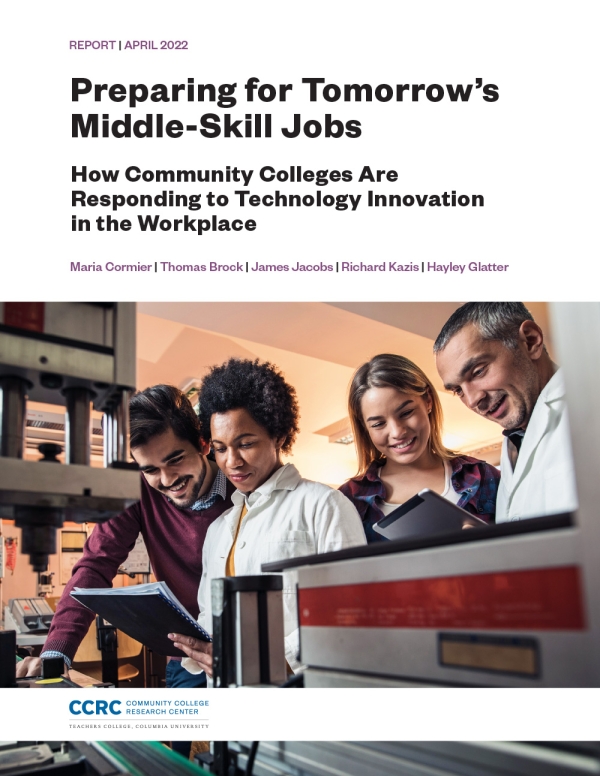
Community colleges throughout the nation have long been instrumental in providing workforce education to both adult and traditional-age students seeking good middle-skill jobs. Yet, across sectors, these jobs are changing. The increased use of technologies such as robotics and artificial intelligence are altering the kinds of skills and the level of skills that these jobs require. This report describes a study conducted by researchers from CCRC and the Massachusetts Institute of Technology’s Task Force on the Work of the Future to understand how community colleges are adapting their workforce programs to changing skill demands, diversifying pathways to certificates and degrees, and grappling with equity concerns. The authors spoke with over 200 administrators, faculty, and staff at eight community colleges to learn about each college’s recent experiences with employers and students in the context of workforce programming in three occupational fields—allied health, information technology, and advanced manufacturing—that are undergoing rapid technological innovation.
Interviewees from the colleges emphasized four categories of skills that employers are increasingly seeking:
- foundational skills in math, reading, and writing;
- technical skills for specific positions;
- digital literacy skills to interpret, analyze, and communicate using digital platforms; and
- a broad mix of interpersonal and cognitive skills central to collaboration, critical thinking, and customer service.
Interviewees also discussed a number of considerations to make community colleges more effective for all workforce students:
Modifying Program Curriculum
- Reassess how the math needs of workforce students are met.
- Do more to help workforce students develop digital literacy skills.
- Focus greater efforts on providing work-based learning opportunities.
Reorganizing College Structures and Supports
- Rethink the relationship between credit and noncredit workforce offerings.
- Better align short-term certificate programs with longer-duration degree programs.
- Reorganize advising and support services for workforce students, many of whom are from underserved populations.
Addressing Equity Concerns
- Enhance efforts to recruit underserved students and provide a culturally responsive campus environment.
- Disaggregate student data across programs to examine equity gaps and identify reforms.
- Eliminate the digital divide in student access to technology.
Many colleges will require resources as well as further guidance to reform and strengthen workforce programming. The federal government, state policymakers, philanthropies, businesses, and intermediaries all have a role to play in supporting research, development, and technical assistance to help colleges make changes that benefit students enrolled in workforce programs.
